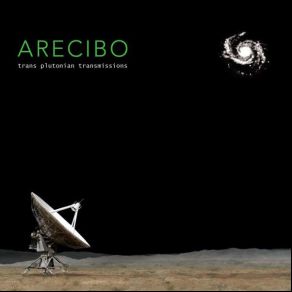Trans Plutonian Transmissions
Download links and information about Trans Plutonian Transmissions by Arecibo. This album was released in 1995 and it belongs to Ambient, Electronica, Techno, Industrial, Rock, Dancefloor, Dance Pop genres. It contains 6 tracks with total duration of 01:05:32 minutes.

|
|
|---|---|
| Artist: | Arecibo |
| Release date: | 1995 |
| Genre: | Ambient, Electronica, Techno, Industrial, Rock, Dancefloor, Dance Pop |
| Tracks: | 6 |
| Duration: | 01:05:32 |
| Buy it NOW at: | |
| Buy on iTunes $7.99 | |
Tracks
[Edit]| No. | Title | Length |
|---|---|---|
| 1. | NGC 5128 (Receiving Station Alignment) | 10:37 |
| 2. | 3C147 (Beyond the Heart of Space) | 13:48 |
| 3. | M87 (The Four Second Timing Discrepancy) | 11:23 |
| 4. | NGC 5426 (Unified Field Modulation) | 7:30 |
| 5. | NGC 5427 (Anomalous Intermittent Radio Source) | 10:16 |
| 6. | 3C295 (Pulse Burst Decryption) | 11:58 |
Details
[Edit]What does Brian Williams (aka Lustmord) do when he isn't making field recordings in slaughterhouses and writing music to accompany the sounds of crashes? As it turns out, he's tuning into the music of the spheres — or at least that's what he was doing in 1994, when this album was originally released, and he did it under the name Arecibo). The music on Trans Plutonian Transmissions is derived from data taken from "cosmological activity as recorded by NASA's Deep Space Network," a group of three deep-space antennas that are placed around the earth at approximately 120-degree intervals, monitoring signals from outer space. The music he creates from this data is as hauntingly beautiful as you might expect, and at times slightly terrifying. "Receiving Station Alignment" starts off with faint howling sounds, then subsides into waves of grayish noise; a single bass note enters the mix and a recorded voice fades in and out, along with a variety of other noises that ebb and flow throughout the piece's ten minutes. "The Four Second Timing Discrepancy" features a sparer, more open texture with scraps of vocals echoing in a dubwise style through a vast space — this track explicitly evokes Brian Eno's Apollo soundtracks. A couple of tracks feature actual, recognizable music and a certain amount of grudging lyricism, but for the most part, this project seems to be all about defining space and filling it with a sense of enormity and existential unease. "Pulse Burst Decryption," the album's final track, starts out as its creepiest: for the first five minutes it sounds like a recording of an alien invasion, and the aliens seem to be Laibach. Yikes. But then a human voice takes over where the Teutonic space creatures leave off, and the remainder of the track's 12 minutes are less forbidding. When all is said and done, the listener is left with a general sense of smallness and wonder more than dread — which, by Lustmord's usual standards, makes this something like Brian Williams' gift to humanity.